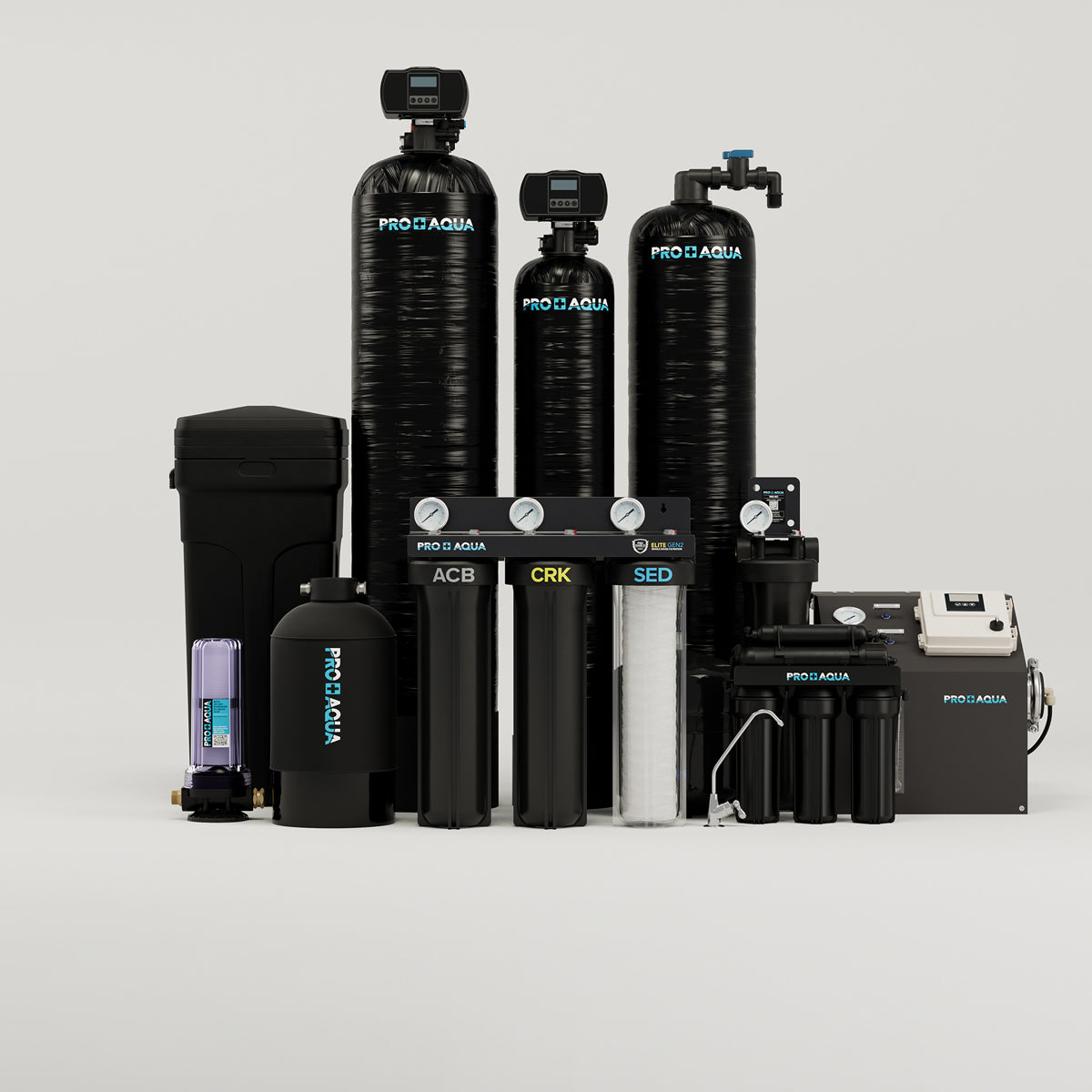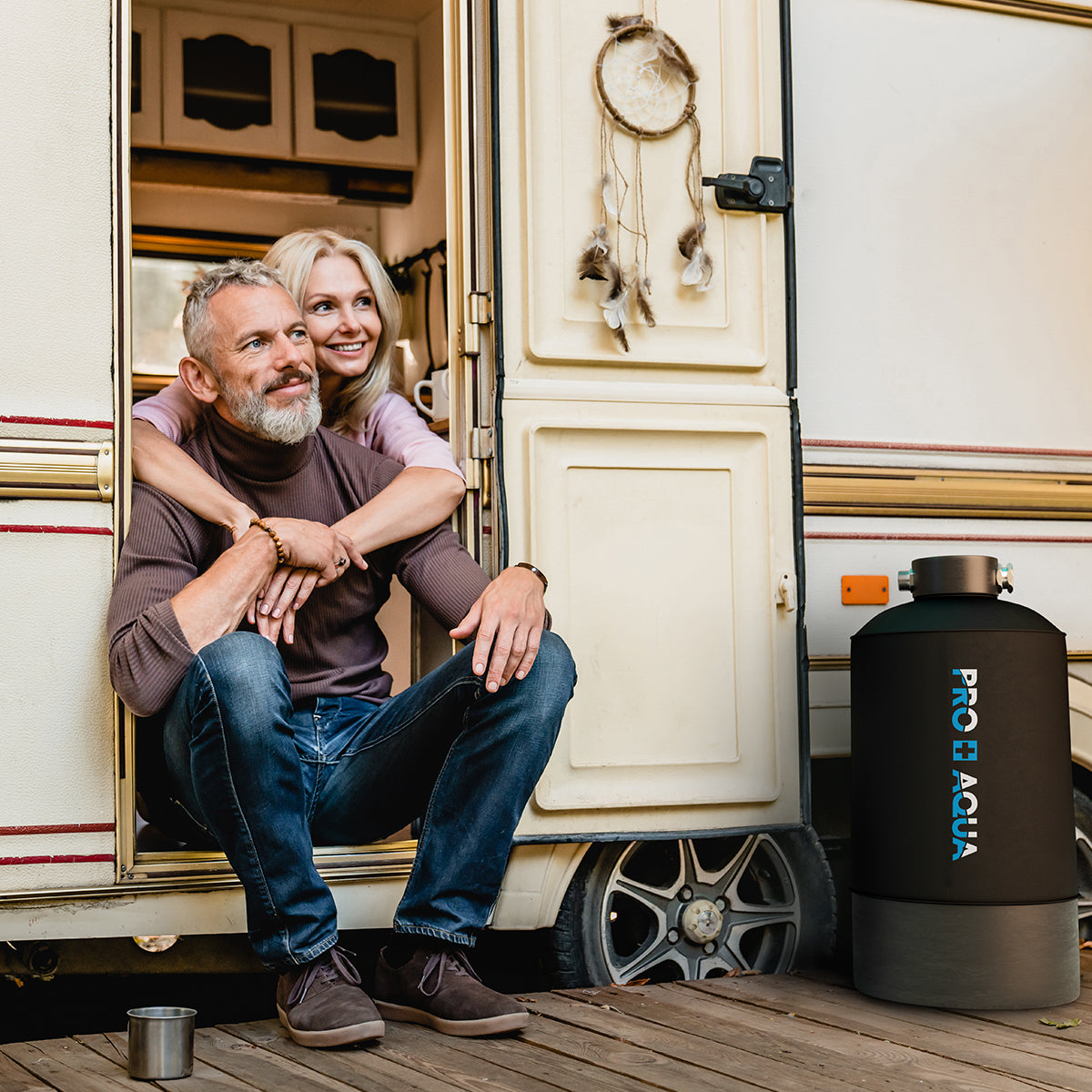TL;DR: Quick Take
- Distilled water is purified by boiling and condensation.
- Deionized water is purified by removing ions through resin.
- Distilled = low in impurities, safe for drinking.
- Deionized = ultra-pure, but not always safe to drink.
- Not always interchangeable—especially in coolant systems or drinking use.
Have you ever looked at a water label and wondered, “Wait... does distilled mean the same as deionized?”
While they both go through purification, the processes and ideal uses differ.
Here’s the breakdown you actually need—no chemistry degree required. Whether you're filling a humidifier or curious about a car wash system, we'll help you make the right call.

What Is Distilled Water?
Distilled water is created by boiling water into steam and then condensing it back into liquid. This leaves behind impurities like minerals, bacteria, and heavy metals.
Key Features:
- Very low in minerals
- Typically safe for human consumption
- Ideal for appliances (like irons, humidifiers)
- May still contain trace organic contaminants (if not properly distilled)

What Is Deionized Water?
DI water uses ion exchange to remove dissolved salts (ions). It doesn’t involve boiling—just powerful resins that strip away charged particles like calcium, magnesium, sodium, and chloride.
Key Features:
- Ultra-pure, chemically neutral
- Not necessarily sterile or microbe-free
- Common in car washes, labs, pharmaceuticals, and electronics
- Not recommended for drinking
Distilled vs Deionized Water Comparison
|
Feature |
Distilled Water |
Deionized Water |
|
Purification Method |
Boiling + condensation |
Ion exchange resin |
|
Removes Minerals? |
✅ Yes |
✅ Yes |
|
Removes Microorganisms? |
✅ If distilled properly |
❌ Not guaranteed |
|
Safe to Drink? |
✅ Usually |
❌ Not recommended |
|
Used In Coolant Systems? |
✅ Sometimes (if specified) |
✅ Often (check system recommendation) |
|
Best For |
Household appliances, medical devices |
Spot-free car washing, batteries, labs, electronics, coolant |
Can You Use Deionized Water Instead of Distilled?
Sometimes—but not always.
Using the wrong water type could:
- Damage appliances because of missing sterilization
- Void warranties if the manufacturer specifies distilled
- Cause corrosion if ultra-pure DI water leaches metal ions
Rule of thumb:
- If you're dealing with heat-based appliances (like a steam mop, iron, CPAP, or humidifier), stick to distilled.
- If it's technical or industrial, and the spec says DI—go with deionized.

Use Case Spotlight: Water for Coolant Systems
If you’re topping off a radiator, HVAC chiller, or industrial coolant system, you might’ve seen instructions recommending deionized or distilled water.
Rule of thumb:
- DI water is preferred for closed-loop systems because it minimizes corrosion.
- Distilled water can work in a pinch, but may leave behind trace minerals if not properly processed.
Best bet: Follow the manufacturer’s guide.
Related Product: PRO+AQUA Deionization Systems
Looking for a way to get deionized water at home? PRO+AQUA offers advanced DI systems built for car detailing, spot-free rinses, and lab-grade water.

Key Benefits:
- Delivers up to 100% pure, ion-free water
- Easy cartridge replacement
- Perfect for pressure washing, auto detailing, and industrial use
FAQs: Deionized vs Distilled Water
Can deionized water be used instead of distilled?
Sometimes, yes—but not always. DI water lacks sterilization, so it’s not ideal for medical or drinking applications. Always check usage guidelines.
Is deionized water safe to drink?
No. DI water isn’t harmful in small sips, but it's not intended for drinking—it lacks minerals and may absorb metals from containers.
Which type of water, distilled or deionized, works better for humidifiers?
Distilled water is safer. It’s sterile and mineral-free, which prevents buildup and bacterial growth inside your humidifier.
What’s the difference between DI water and distilled water?
Distilled water is made by boiling and recondensing; DI water is made by removing ions through resin. Distilled is more suitable for drinking; DI is purer but not sterile.
Which is better for coolant, distilled water or deionized water?
Deionized is often better for high-performance or sensitive coolant systems. But always refer to your manufacturer’s spec sheet.
Conclusion: Know What You’re Pouring
When it comes to DI vs distilled water, it’s not about which one is better, it’s about which one is right for your needs.
- If your water use involves drinking, appliances, or sterilization, go with distilled.
- If you're powering industrial systems, lab work, or auto detailing, consider deionized.
Either way, water purity matters—so make sure your system is equipped to deliver it.
Need a filter for ultra-pure water? Explore the RinseMaster Series from PRO+AQUA.







Leave a comment
This site is protected by hCaptcha and the hCaptcha Privacy Policy and Terms of Service apply.